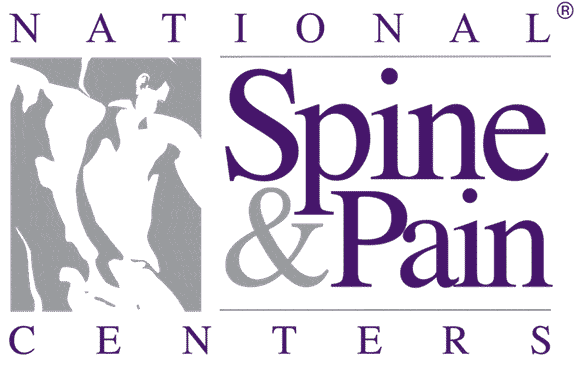Mar 1, 2012 | Knee, Research, Stem Cell Procedures
Increased knee cartilage volume in degenerative joint disease using percutaneously implanted, autologous mesenchymal stem cells, platelet lysate and dexamethasone.
Background
The purpose of this study was to see if percutaneously injected autologous mesenchymal stem cells, platelet lysate, and dexamethasone could reduce this patient’s knee cartilage defect size.
Case Report: A study patient’s mesenchymal stem cells were obtained from her iliac crest bone marrow, isolated and expanded in culture. They were then injected into her knee along with autologous platelet lysate to enhance growth, and nanogram doses of dexamethasone to promote differentiation to chondrocytes. Pre and post treatment MRI imaging, physical therapy and pain score data were then analyzed.
Conclusions: This patient’s MRI data showed a signifi cant decrease in cartilage defect size. Along with this, her measured physical therapy outcomes and subjective pain and functional status all improved. Autologous mesenchymal stem cell injection, in conjunction with platelet lysate and low-dose dexamethasone are a promising minimally invasive therapy for osteoarthritis of the knee.
Read the full case report…
Mar 1, 2012 | Hip, Research, Stem Cell Procedures
Partial regeneration of the human hip via autologous bone marrow nucleated cell transfer: A case study.
Abstract
This is a case report of a 64-year-old white male with a 20 year history of unilateral hip pain that had become debilitating over the last several years. On intake, Harris hip score was rated as: Pain subscale = 10, Function subscale = 32, Deformity subscale = 4, Motions subscale = 4.775 with a total score of 50.8 out of 100. MRI of the affected hip showed severe degeneration with spurring, decrease in joint space, and several large subchondral cysts. The patient had been evaluated by an orthopedic surgeon and told he was a candidate for bipolar hip replacement.
METHOD: Two autologous nucleated cell collections were performed from bone marrow with subsequent isolation and transfers into the intra-articular hip using a hyaluronic acid and thrombin activated platelet rich plasma scaffold. Marrow samples were processed by centrifugation and lysis techniques to isolate nucleated cells.
CONCLUSION: This report describes partial by articular surface regeneration 8 weeks after intraarticular bone marrow transfer. Post-op 3.0T FGRE MRI showed neocortex formation when compared to immediate pre-op MRI and objective improvements were noted that coincided with subjective reports of improvement.
Source: http://www.ncbi.nlm.nih.gov/pubmed/16886034
Mar 1, 2012 | Research, Stem Cell Procedures
Safety and complications reporting on the re-implantation of culture-expanded mesenchymal stem cells using autologous platelet lysate technique.
Abstract
Mesenchymal stem cells (MSCs) hold great promise as therapeutic agents in regenerative medicine. Numerous animal studies have documented the multipotency of MSCs, showing their capabilities for differentiating into orthopedic tissues such as muscle, bone, cartilage, and tendon. However, the complication rate for autologous MSC therapy is only now beginning to be reported.
METHODS: Between 2005 and 2009, two groups of patients were treated for various orthopedic conditions with culture-expanded, autologous, bone marrow-derived MSCs (group 1: n=45; group 2: n=182). Cells were cultured in monolayer culture flasks using an autologous platelet lysate technique and re-injected into peripheral joints (n=213) or into intervertebral discs (n=13) with use of c-arm fluoroscopy. While both groups had prospective surveillance for complications, Group 1 additionally underwent 3.0T MRI tracking of the re-implant sites.
RESULTS: Mean follow-up from the time of the re-implant procedure was 10.6 +/- 7.3 months. Serial MRI’s at 3 months, 6 months, 1 year and 2 years failed to demonstrate any tumor formation at the re-implant sites. Formal disease surveillance for adverse events based on HHS criteria documented 7 cases of probable procedure-related complications (thought to be associated with the re-implant procedure itself) and three cases of possible stem cell complications, all of which were either self-limited or were remedied with simple therapeutic measures. One patient was diagnosed with cancer; however, this was almost certainly unrelated to the MSC therapy.
CONCLUSIONS: Using both high field MRI tracking and general surveillance in 227 patients, no neoplastic complications were detected at any stem cell re-implantation site. These findings are consistent with other reports that also show no evidence of malignant transformation in vivo, following implantation of MSCs that were expanded in vitro for limited periods.
Source: http://www.ncbi.nlm.nih.gov/pubmed/19951252
Mar 1, 2012 | Research, Stem Cell Procedures
Regeneration of meniscus cartilage in a knee treated with percutaneously implanted autologous mesenchymal stem cells.
Abstract
Mesenchymal stem cells are pluripotent cells found in multiple human tissues including bone marrow, synovial tissues, and adipose tissues. They have been shown to differentiate into bone, cartilage, muscle, and adipose tissue and represent a possible promising new therapy in regenerative medicine. Because of their multi-potent capabilities, mesenchymal stem cell (MSC) lineages have been used successfully in animal models to regenerate articular cartilage and in human models to regenerate bone. The regeneration of articular cartilage via percutaneous introduction of mesenchymal stem cells (MSC’s) is a topic of significant scientific and therapeutic interest. Current treatment for cartilage damage in osteoarthritis focuses on surgical interventions such as arthroscopic debridement, microfracture, and cartilage grafting/transplant. These procedures have proven to be less effective than hoped, are invasive, and often entail a prolonged recovery time. We hypothesize that autologous mesenchymal stem cells can be harvested from the iliac crest, expanded using the patient’s own growth factors from platelet lysate, then successfully implanted to increase cartilage volume in an adult human knee. We present a review highlighting the developments in cellular and regenerative medicine in the arena mesenchymal stem cell therapy, as well as a case of successful harvest, expansion, and transplant of autologous mesenchymal stem cells into an adult human knee that resulted in an increase in meniscal cartilage volume.
Source: http://www.ncbi.nlm.nih.gov/pubmed/18786777
